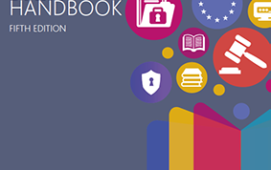
Leading financial bodies have welcomed a proposed voluntary code of conduct for ESG ratings providers, which has been launched in the UK to improve confidence in a sector that’s growing in importance for financial institutions.
The document, published on July 5, suggests a six-principles approach to bringing order to ESG ratings whose providers face criticism over inconsistencies in their scores and conflicts of interest.
The proposal was welcomed by Britain’s Investors Association, the UK Sustainable Investment and Finance association (UKSIF), as well as the International Swaps and Derivatives Association (ISDA) and the Association for Financial Markets in Europe (AFME).
“We expect that the demand in the UK, and internationally, for these types of products will grow markedly in the coming years, and it is absolutely crucial for investors and other users to have full confidence in ESG ratings, including their underlying methodologies,” UKSIF said in a statement.
“The associations support the introduction of regulation for ESG ratings providers, in particular the need for greater transparency of methodologies, sufficient resources and expertise within providers, stronger governance, and addressing conflicts of interest,” a joint comment from ISDA and AFME stated. “This is particularly important given the global nature of the market for ESG ratings.”
Government Scrutiny
The publication comes just days after the closure of a four-month government Treasury-led consultation on regulating the firms, which was launched in recognition of the growing importance that investors place on ratings when making decisions on the £4.7 trillion of assets integrated into sustainability assessment processes.
The draft code of conduct sets out six principles that it recommends rating firms follow, covering: good governance, securing quality, conflicts of interest, transparency, confidentiality and engagement. With each principle, the code recommends a set of actions that raters should take and describes outcomes that should be targeted.
The six principles are aimed at “improving the availability and quality of information provided to investors at product and entity levels; enhancing market integrity through increased transparency, good governance and sound systems and controls; and improving competition through better comparability of products and providers”.
The code is built on recommendations made in 2021 by the International Organisation of Security Commissions (IOSCO), which said that ratings were too important for regulators to overlook. As well as offering recommendations on how ratings firms can improve their services, IOSCO suggested the firms be brought either under direct regulatory scrutiny or encouraged to follow voluntary codes of conduct.
“In the UK, regulation is being considered in parallel with the development of this Code of Conduct,” the draft stated.
FCA Commission
The code of conduct was commissioned by the UK regulator, the Financial Conduct Authority (FCA), which created the ESG Data and Ratings Code of Conduct Working Group (DRWG) to draw up the proposals. The working group was supported by the International Regulatory Strategy Group (IRSG) and the International Capital Market Association (ICMA).
According to business researcher Opimas, the market for ESG data grew to about US$1.3 billion last year, of which ratings and raw data providers accounted for 70 per cent. Indices claimed the balance.
Ratings provided by companies including MSCI, ISS ESG, Sustainalytics and Moody’s are important to investors at a time when raw data on investment instruments is often patchy in volume and quality, and as demand for sustainable investments has surged. They offer an aggregated view into an instrument’s sustainability by using sophisticated analytics to establish scores when data is missing.
But they have come under scrutiny as their importance has grown. The largest complaint they face is that they often give widely differing scores to the same companies. This is usually the result of each using its own rating methodology, making comparisons of companies tricky for investors. Accusations of greenwashing have occasionally been levelled at asset managers who have, naturally, cited the best rating offered by a provider in their sales documentation.
There is also concern that raters who also offer consulting services may be massaging scores to make them more attractive to clients.
The UK action is the first among leading market overseers, many of whom have put ESG ratings under scrutiny. The EU is mulling regulatory oversight for the firms, as is the SEC.
While the Code of Conduct will now be subject to industry scrutiny during a consultation period that runs to October 5, the UK’s Treasury has just wound up its own consultation on whether the industry should be regulated. The government’s financiers said the responses to the soundings will inform their policy response soon after.
Subscribe to our newsletter



